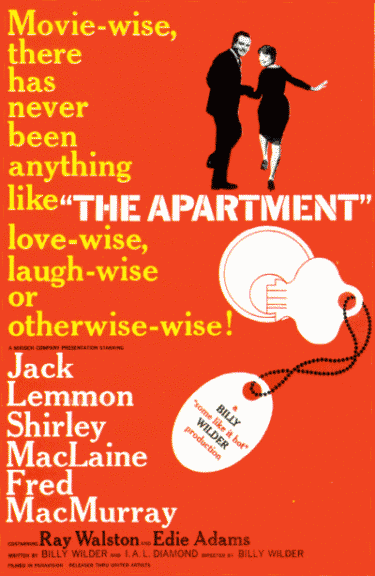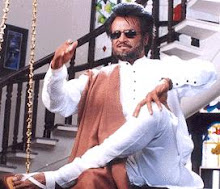This is one of many parts of a story that will, hopefully, appear on this blog at regular intervals. 'Love Brinjal' is a direct translation of one of my favourite Tamil expressions - 'Kaadal Kathhirikka'. All characters in this story are fictional and creations of my imagination. If they bear any resemblance to any characters real, I tender apologies to such characters!
***
"Chill, da. There are other fish in the ocean. You might never find them, but they are there," she said, smiling.
At once, this became the prophecy and curse of my life. Every now and then, I'd get an inkling that the fish I was looking for existed, but I never found it. On many occasions, I'd believe that I had found this fabled fish, sitting next to me in a bus, or at a concert, or at a friend's birthday party. And then she would open her mouth, and very quickly, become another one of those squids that inhabit the ocean. One of the more infamous cases of this was at a bookstore in Delhi. Now this could have happened only in Delhi.
While I was looking through the Indian authors section in a little bookstore on a wintry January evening in Delhi, this girl walks into the shop. Without doubt, she is the most beautiful woman I had ever seen. She could have been Miss Universe! (Now, there's another girl I saw much earlier who could have also been Miss Universe, but I'll get to her later.). Women in Delhi, I believed, were too stupid for my psuedo-intellectual, Herman Hesse-reading, discoursing, anti-globalisation self. It was a sweeping generalisation, (All generalisations are usually sweeping!) but I believed it strongly. Until this girl walked into that bookstore. She was a beautiful woman in a bookstore - like Tendulkar playing a cover drive in the Sydney Test - a sight you never thought you'd see. She walked straight towards the Indian authors shelf - towards me! I looked away. I didn't want her to catch me staring. First impressions last long. She looked through the books, occasionally taking one out of the shelf and reading the back page. She was judging the book by its cover - just like me. I had found the fish. After what seemed like seven years to me, and one minute to the rest of the world, it became clear to everyone that she was looking for something in particular. For some reason, she asked me.
"Hey, have you seen that Abhijit Sawant book around?"
I thought of the day when the prophecy was made - the day I was branded an unlucky fisherman. They say knowledge is power. Balls. Knowledge is pain. Now I knew there were other fish in the ocean. Before the day of enlightenment, I would have presumed that there was no fish left, and stopped fishing. But now I knew.
The scene was as filmy as they came. We were at this quiet corner of Cubbon Park, having this intense conversation on the question that would be answered with the Adamsian "42". But then, it probably was not as filmy. Nobody in the movies ended a relationship thinking of fish and oceans. Nobody in movies ended their relationship with the guy saying, "Don't stop me now," referring to the smoking of a cigarette, and both parties smiling. Nobody ended their relationship at Cubbon Park, they sang songs there! Finally, I did something really filmy. When she held out her hand and said, "Let's go," I said, "You go. I'll leave in a while." And when she left me sitting there alone, smoking my first Milds in two months, looking depressed as hell, I was in a movie, every action rehearsed to coincide with the music that slowly drowned out the sounds of Cubbon Park, the camera zooming out, and a sad song taking over.
In a Hindi movie, this would be followed by this sequence where I gatecrash at her wedding and win her back. A French movie might have ended with a scene where she cheats on her husband and I emerge winner. But this one was Woody Allen style, where linearity of time is never really the concern. This one started there. As she walked away, it started drizzling. The drizzle never really went beyond a bracing moisture in the air, although it got more bracing all the time.
**
When I rushed into her house, she was in the kitchen. Making rasam. In an interview, Vishwanathan Anand said that no two women can make the same rasam. They might have learnt from the same person and follow the same recipe, but the rasam is never the same. I haven't heard a truer statement about South Indian women.
"Quick. Get your sruti box out."
"Why?"
"This is the opportune moment to feel good about our music."
She didn't understand what I meant, but got the sruti box and turned it on. I sat on the dining table, and sang five notes. She looked at the sky and replied, "You bastard!"
I continued singing. She kept looking out of the window, and then looking at me and saying, "Not working."
But it was bound to work. It was overcast, and rain was imminent. She joined in, and almost immediately, it started pouring. I don't know if it was my imagination or the truth, but the rain seemed to follow our singing, as if it were dancing to our music. She ran out to the balcony, and in a very movie-like manner, stood in the rain with her arms wide open. I followed suit, and we stood there, on the sixth floor balcony, in heavy rain, with
Amritavarshini still playing in our ears, the sruti box droning on in the background, and we kissed.
"Wait... This can't happen" she said, breaking away
"Why?"
"You're too young."
"Five years isn't all that young!"
"You smoke too much," she said.
"That's hardly a reason."
"Have you ever kissed someone who smokes?"
In fact, I had.
***
This was one of those days, three hours after India had thrashed Bangladesh in another inconsequential, insipid one-day. I realised that I felt more and more like the Bangladesh cricket side. Especially when it came to women. From being a geeky, inexperienced bumpkin, I was suddenly thrown amongst a battery of the fairer amongst the fairer sex who seemed to find my lack of charm cute. On this day, I was bowled over by yet another girl, much like the Bangladesh side by Zaheer Khan. I decided at 8 pm that a Milds would brighten my evening, and took my Scooty to the Little Cigarette Shop. On my way back, I got stuck at The Signal as usual - a place where much of my life's exciting events took place. This incident rates amongst the most exciting.
While I puffed on my Milds at The Signal counting backwards from 180 along with the clock, a Thunderbird pulled up next to me. On the Thunderbird was the other woman who looked like she could have been Miss Universe. She asked, "Do you have a light?"
And then there was light, I thought. I was never very eloquent when it came to describing love, or even conceptualising love, and the sad thought was a manifestation of this limitation. 148 seconds remaining. I rummaged my bag for a matchbox. Where the bloody hell had it disappeared? 112 seconds now. She was asking another guy for it. I saw him shake his head. Relief. 99 seconds. It had to be in my bag. But then it wasn't. 80 seconds. Oh, wait. It was in my pocket. Rummage, rummage. 68 seconds. There. I handed it to her. In one smooth movement, she lit the cigarette, and handed me the matchbox. 44 seconds. I was now totally in love.
For some reason, she liked me too. Things progressed and pretty quickly, we were an item - she on her Thunderbird, and me on my Scooty (or sitting behind her) - setting the town on fire. Bangalore was suddenly on top of my favourite cities list, because I discovered the joys of claustrophobia at Pecos, free beer with each food item at Windsor Pub, the cheapness of getting drunk at Ganesh Bar.
One thing irked me, though - the Metal I was forced to listen to. Innumerable concerts spent standing cluelessly in the front row, headbanging to mindless growling, and even more number of nights spent in her room listening to the latest that the Brotherhood of Growlers had to offer. Countless days spent discussing lyrics of the Grand Panjandrums of the Brotherhood, and copious amounts of illicit substances actively or passively consumed.
One day she said, "These lines are so deep - 'reverberations of drowning death, meticulations of reptilian breath.'"
I had had enough of pontification about death! I felt like Bangladesh team again, analysing the end each evening. I quit, and hoped that Bangladesh would too, before all Test Match records became irrelevant.
**
 All day, I have been watching various people expressing their opinions on why Sanjay Dutt should have been pardoned and let off under probation. Now, the Information and Broadcasting Minister has joined the bandwagon.
All day, I have been watching various people expressing their opinions on why Sanjay Dutt should have been pardoned and let off under probation. Now, the Information and Broadcasting Minister has joined the bandwagon. Couple of weeks ago, I spoke too soon when I wrote Dinesh Karthik off as an opener in Test Cricket. I referred to him as 'the fielder', because he didn't show much promise with the bat, and not could he do any bowling. I compared him to Jimmy Kamande - the infamous Kenyan cricketer of whom Harsha Bhogle asked after five matches, "What does Jimmy Kamande do?". I was aghast when he was picked over Yuvraj for this Test series.
Couple of weeks ago, I spoke too soon when I wrote Dinesh Karthik off as an opener in Test Cricket. I referred to him as 'the fielder', because he didn't show much promise with the bat, and not could he do any bowling. I compared him to Jimmy Kamande - the infamous Kenyan cricketer of whom Harsha Bhogle asked after five matches, "What does Jimmy Kamande do?". I was aghast when he was picked over Yuvraj for this Test series.








